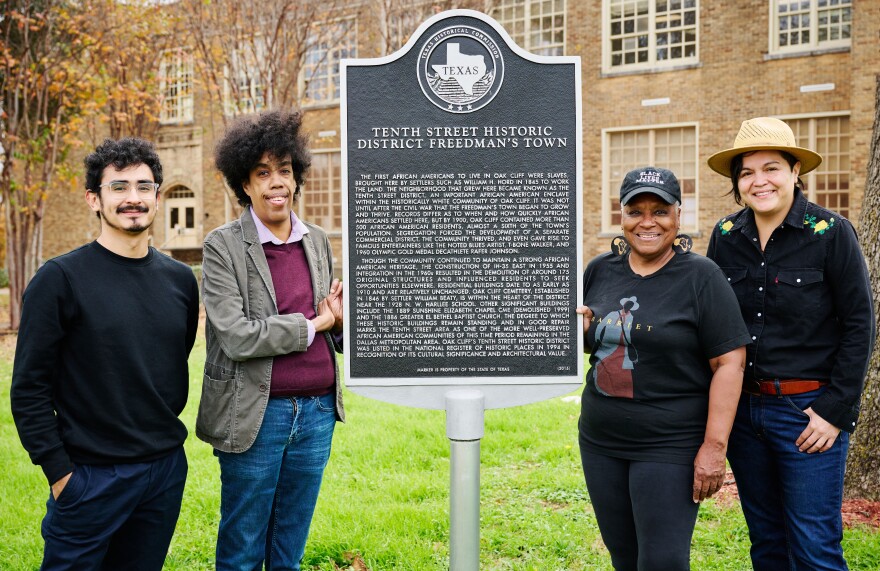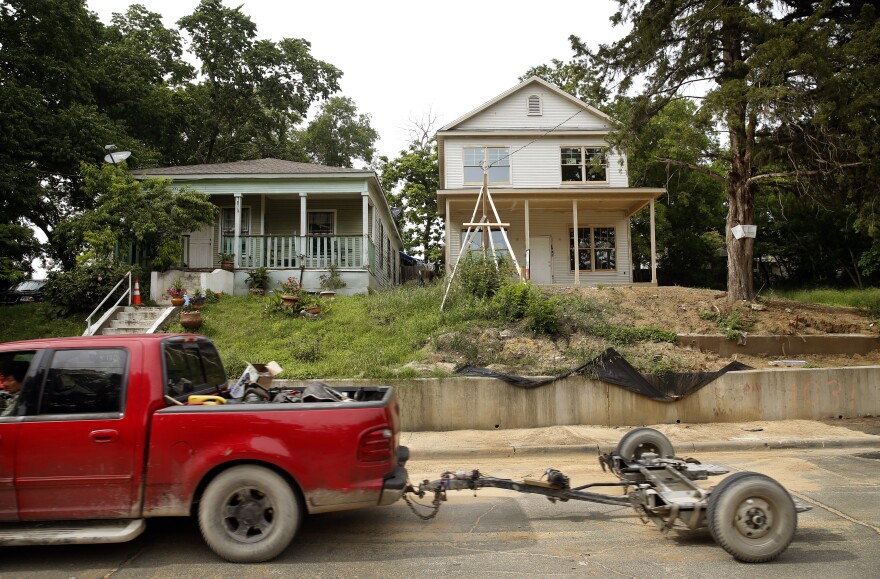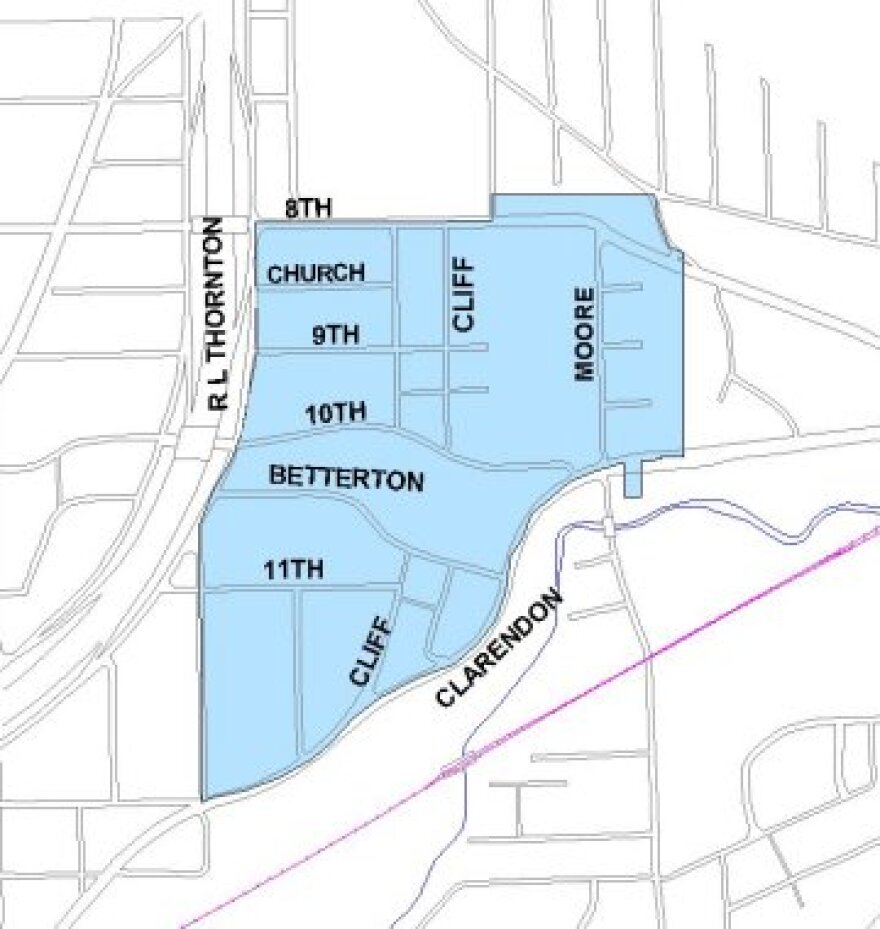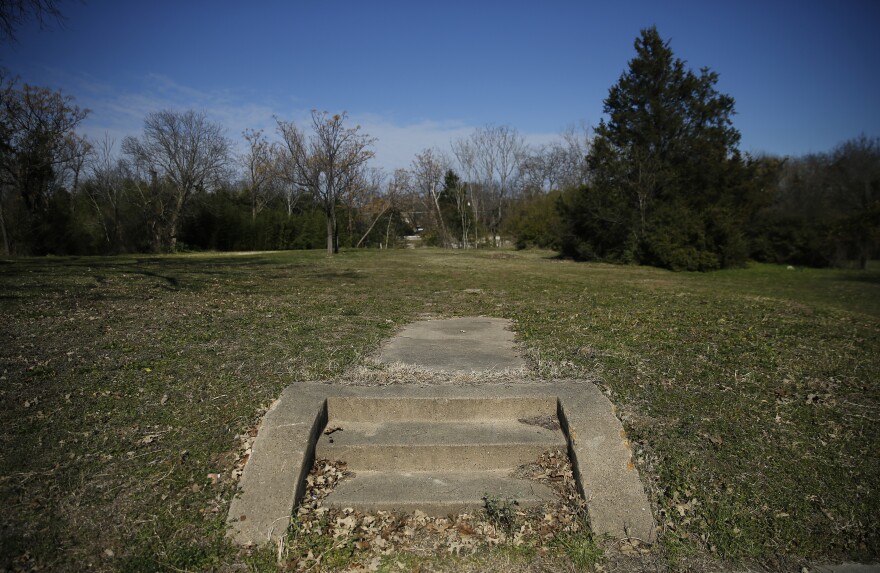Explore more stories from Arts Access.
Dallas artist-curator Vicki Meek will lead a team of collaborators, North Texas artists and a historian, in creating a monument for the endangered Tenth Street neighborhood in Oak Cliff.
The final product of this Nasher Sculpture Center project has not been conceived yet , but Meek said it will be developed through community conversations. S he w as aw a r ded a fel lows hip by the N ashe r f or 18 mo nths.
"It could be a film," Meek said of the end result. "It could be a play put on by Soul Rep. It's not traditional public art. What we're doing is really looking at the way these communities get erased. But I want to remember them by getting the stories because that's really what communities are about -- the human beings that lived there and the stories they create."

Enslaved African Americans were first brought to Oak Cliff in 1845; by 1900, it had some 500 Black residents, and Tenth Street had become a segregated Black enclave within Oak Cliff.
But by the late 1950s an d early 1960s, the neighborhood was split by the construction of I-35 — which had led to the demolition of some 175 original structures. Since then, Tenth Street has been battered by city neglect. But it was also left isolated from the kind of wildfire gentrification that took over Bishop Arts, just across the freeway from the district.
Now though, Meek said, "there is aggressive gentrification in the Tenth Street area because it's very convenient to downtown."
In 1994, Tenth Street was listed in the National Register of Historic Places. But by 2019, it was also listed as one of the most endangered historic sites in America by the National Trust for Historic Preservation. The trust included it with Nashville's Music Row and the Pueblo cliff dwellings of southeast Utah.

Meek said she feared the neighborhood may go the way other Freedman's Towns in North Texas have gone — like the one that pretty much disappeared beneath Uptown and the Arts District.
"But there are still people here," she said, "who have real memories of the community as it once was."
She wants to capture those voices, those memories, she said, to document them, interpret them.
The Nasher Fellowship in Urban Historical Reclamation and Recognition is an outgrowth of Nasher Public, the museum's offsite efforts at increasing access to modern art around Dallas.
Meek has artworks in the permanent collections of Dallas' African American Museum and Houston's Museum of Fine Arts and is represented by the Talley Dunn Gallery. For this project, she will collaborate with Dallas playwright Jonathon Norton, filmmaker Christian Vazquez, social practice visual artist Ángel Faz and historian Dr. Marvin Dulaney, president of the Association for the Study of African American Life & History.
Meek said the Nasher first approached her. She's had exhibitions there, such as the installation "Stony the Road We Trod," in 2021. Meek called it "a contemporary shrine to the Black community."

"They originally wanted something possibly along curatorial lines from me," Meek said of the Tenth Street project. But when she declined, she said, "they allowed me to define what it was I was going to do. And we settled on a fellowship, because then I wouldn't have to be going back into any kind of administrative role."
This collaborative effort, she said, is more in the line of her current, community-centered practice.
Fundraising for the eventual "capstone public art project," as the Nasher labeled it, is continuing, so no final price tag could be put on it — or even on Meek's fellowship.
But Meek herself sees this as a pilot project.
"We're hoping to get additional funding to look at the disappearance of the Mexican American communities [in North Texas] and the disappearance of the I ndigenous communities, and to do two other iterations of this project.
"So that's it. That's my big dream."
Arts Access is a partnership between The Dallas Morning News and KERA that expands local arts, music and culture coverage through the lens of access and equity.
This community-funded journalisminitiative is funded by the Better Together Fund, Carol & Don Glendenning, City of Dallas OAC, Communities Foundation of Texas, The Dallas Foundation, Eugene McDermott Foundation, James & Gayle Halperin Foundation, Jennifer & Peter Altabef and The Meadows Foundation. The News and KERA retain full editorial control of Arts Access’ journalism.
Got a tip? Email Jerome Weeks at jweeks@kera.org. You can follow him on Twitter @dazeandweex.
Art&Seek is made possible through the generosity of our members. If you find this reporting valuable, consider making a tax-deductible gift today. Thank you.
Copyright 2022 KERA. To see more, visit KERA. 9(MDAwMTM1NDgzMDEyMzg2MDcwMzJjODJiYQ004))


